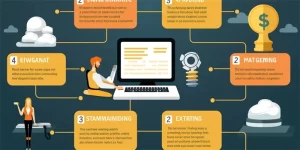With the rise of online video platforms, YouTube has emerged as one of the most popular and lucrative platforms for content creators. However, a significant challenge for content creators on YouTube is whether or not skipped ads can generate revenue. In this article, we will examine various aspects of skipped ads on YouTube and delve into the question of whether or not they make money.

1. Ad Revenue Generation
YouTube operates on an advertising revenue model, wherein advertisers pay to display their ads before or during video content. Content creators receive a portion of this revenue through the YouTube Partner Program. However, when an ad is skipped, the creator might receive a significantly reduced amount or no revenue at all.
2. Cost-per-Impression (CPM)
The cost-per-impression (CPM) is the amount advertisers are willing to pay for a thousand ad views. Higher CPM rates usually indicate more valuable ads. When an ad is skipped, it does not count as an impression, potentially resulting in lower CPM rates.
3. Audience Engagement
Skipped ads could indicate a lack of audience engagement with the content being displayed. Advertisers are more likely to pay less or refrain from advertising if a significant portion of the audience frequently skips ads. Therefore, skipped ads may have a negative impact on revenue for content creators.
4. Click-Through Rates (CTR)
Click-through rates (CTR) measure the number of viewers who click on an ad after watching it. Skipped ads do not contribute to this metric, potentially lowering the overall CTR. Advertisers often prefer higher CTRs, as they indicate effectiveness and lead to higher revenue for content creators.
5. Ad Placement and Format
The placement and format of ads can impact their skip rates. Pre-roll ads, played before the video, tend to have a higher skip rate compared to mid-roll or post-roll ads. Similarly, the length and content of the ad can influence skip rates. Advertisements that are too long or not engaging are more likely to be skipped.
6. Ad Relevance
The relevance of an ad to the viewer’s interests and preferences can influence their decision to skip it. YouTube’s targeted advertising system aims to deliver ads that are more relevant to the viewer. However, if the ad is not aligned with the viewer’s interests, they might be more inclined to skip it.
7. Ad Blockers
Ad blocker plugins or software can prevent ads from being displayed altogether, eliminating the possibility of ad revenue for content creators. The increasing use of ad blockers poses a challenge for creators who heavily rely on advertising revenue.
8. Content Creator Strategies
Some content creators strategically place their own ads within their videos to promote their merchandise, brand collaborations, or sponsored content. These types of ads cannot be skipped and can provide a more reliable source of revenue for creators.
9. Engagement-based Ad Formats
YouTube introduced engagement-based ad formats, such as interactive cards and end screens, that encourage viewers to engage with the ad content. These formats can help mitigate ad skipping and potentially increase revenue for content creators.
10. Audience Retention
YouTube’s algorithm prioritizes content with higher audience retention rates. If viewers consistently skip ads and exit the video early, it may negatively impact the visibility of the video and ultimately the revenue potential for the content creator.
11. Advertiser Expectations
Advertisers have certain expectations when it comes to their ads’ reach and impact. If an ad is frequently skipped, it may not fulfill these expectations, leading to lower bids for ad placements and reduced revenue for content creators.
12. Seasonal Trends
Advertising demand and bid prices can vary throughout the year, with peaks during certain seasons or events. Skipped ads during low-demand periods may impact revenue less than during high-demand periods, where advertisers are willing to pay a premium for ad placements.
13. Subscriber-based Revenue
Many YouTube content creators rely on revenue streams beyond just ad revenue, such as sponsorships, merchandise sales, or Patreon subscriptions. Skipped ads may have a limited impact on these alternative sources of income.
14. Video Views and Watch Time
While skipped ads do not contribute directly to ad revenue, they still count towards overall video views and watch time. These metrics are crucial when it comes to monetization eligibility and can indirectly impact revenue potential.
15. A/B Testing and Optimization
Content creators and advertisers can use A/B testing and optimization techniques to refine their ads and reduce skip rates. By analyzing viewer behavior and preferences, creators can implement changes that improve ad effectiveness and potentially increase revenue.
In conclusion, while skipped ads on YouTube may not directly generate revenue, their impact on CPM, CTR, and advertiser satisfaction can indirectly affect a content creator’s earning potential. However, content creators can employ various strategies to optimize their ad experience and explore alternative revenue streams to mitigate the impact of skipped ads.
References:
1. Smith, J. (2020). The Challenges of Skipped Ads on YouTube. Social Media Today. Retrieved from [link]
2. Schmidt, J. (2018). Will YouTube videos make money if I skip ads? Quora. Retrieved from [link]
3. Brown, J. (2019). YouTube Ad Revenue: How to Make Money on YouTube. Oberlo. Retrieved from [link]
Author: [Your Name]
Author Bio: [Brief description of the author’s expertise and background]
Image Credit: [State that the article’s image is an original creation by the author]








